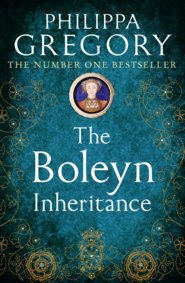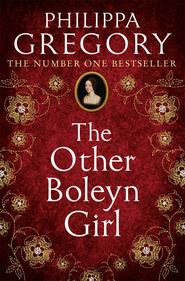По всем вопросам обращайтесь на: info@litportal.ru
(©) 2003-2024.
✖
A Respectable Trade
Настройки чтения
Размер шрифта
Высота строк
Поля
Josiah dropped two crumbling lumps of thick brown sugar into his coffee, savouring the sweetness, the very scent of the Trade, and signalled for a glass of rich dark rum. ‘As you wish,’ he said casually. ‘I have other men that should have the offer first, perhaps. I only mentioned it because of your interest. Think no more about it.’
‘Oh no,’ the man said quickly. ‘What share would you be looking for?’
‘A quarter,’ Josiah replied coolly. He looked away from the table and nodded a greeting at another man.
‘And how much would that be?’
Josiah seemed to be barely listening. ‘Oh, I couldn’t say …’ He shrugged his shoulders. ‘Perhaps a thousand pounds each, perhaps nine hundred. Say no more than nine hundred.’
The man looked rather dashed. ‘I had not thought it would be so much …’
Josiah turned his brown-stained smile on him. ‘You will not regret it being so much when it shows a profit of twenty or thirty per cent. Eh?’
‘And who will be the ship’s husband? You? You will do all the fitting and the orders?’
‘Myself,’ Josiah said. ‘I always do. I would trust it to no other man. But I should not have troubled you with this. There is Mr Wheeler now, I promised him a share in the Lily.’
‘No, stay,’ the man protested. ‘I will take a share, Josiah. I will have my share in her.’
Josiah nodded easily. ‘As you wish, Samuel.’ He held out his hand and the other grasped it quickly. ‘Come to my warehouse this afternoon, and bring your bond. I will have the contract for you.’
The man nodded, half-excited and half-fearful. He rose from the table and went out. He would be busy from now until the afternoon scouring the city for credit to raise his share.
‘I had not thought he had nine hundred pounds to outlay,’ one of the others remarked. ‘You had best see your money before you sign, Josiah.’
Josiah shrugged. Despite himself, his eyes strayed to the table at the top of the room. The men had called for a pie, a ham and some bread and cheese for their breakfasts. They were drinking port. They were joking loudly, and their faces were flushed. They did not have to haggle over some small man’s life savings to finance a voyage. They carved up the profitable voyages among themselves, they shared the profits from the docks – even the barges that plied up and down the Avon paid them a fee, the little ferryboat and even the lighthouses paid them rent.
‘I have some news,’ Josiah said abruptly. ‘I am to be married.’
There was a stunned silence at the little table.
‘To the niece of Lord Scott of Whiteleaze,’ Josiah went on. ‘His lordship will be calling on me soon and we will settle the marriage contract.’
‘My God! Josiah!’ one exclaimed.
‘Wherever did you meet the lady?’ one of the others asked. The rest simply gaped.
‘She called on us,’ Josiah lied convincingly. ‘She knows a friend of my sister’s. They were at school together.’
The men could hardly find words. ‘I had thought you would be a bachelor forever!’ one of them said.
‘And with Sarah to keep house for you! I never thought you would marry.’
‘I was waiting for the right lady,’ Josiah said precisely. ‘And for my fortunes to be on such a rise that I could offer her a proper position in life.’
The men nodded. The news was too staggering to be taken in all at once. ‘I had not thought he was doing that well,’ one of the men muttered.
‘I shall move from the warehouse,’ Josiah said. ‘I shall take a new house for my wife.’
‘Where will you live?’
‘I shall buy a house in Queens Square,’ Josiah said. Again he glanced towards the top table. The men there owned Queens Square outright; it had been built by the Corporation, to their design. They could choose whether or not to sell to him. Money alone could not buy him into their neighbourhood; but with Lord Scott’s niece on his arm he would be welcomed in the elegant brick-faced square. Josiah would call them ‘neighbour’ and his new wife would visit their wives.
The men at the table nodded. ‘And the lady …’
‘Shall we return to business?’ Josiah asked with a small triumphant smile. ‘I think that is enough about the lady who is to be Mrs Cole.’
They nodded, as impressed by the triumph of his marriage as by his quiet dignity.
‘About this voyage of the Lily,’ one of them said. ‘I think I’ll take a share after all. Will his lordship be coming in with us?’
Josiah smiled slightly. ‘Oh, I should think so,’ he said.
Mehuru’s mission was going well. He went from town to town and even stopped at the councils of the larger villages as he worked his way north-west across the great rolling plains of the Yoruba nation. The villagers knew that he was talking nothing more than sense. For all the profits that could be made from the slave trade – and they were beyond the dreams of most farming communities – there were terrible stories, garbled in the telling, of rivers where no-one dare fish and woods where no-one could walk. Whole villages were desolate, hundreds, thousands of women and children abandoned and starving in fields which they could not farm alone. It was a blight spreading inland from the coast, a plague which took the young men and women, the fittest and the strongest, and left behind the ill, the old, and the babies.
This plague of slavery worked unlike any other. It took the healthy, it took the adventurous, it took the very men and women who should command the future. The guns and gold and fine cloth could not repay Africa for the loss of her brightest children. It was the future leaders who were bled away, along the rivers, down the trade routes.
‘This is where it stops,’ Mehuru said firmly in one town council after another. ‘One nation has to refuse. One nation has to throw up a wall and say that it must end here. Otherwise what will become of us? Already the trade routes running north are unsafe, and the wealth of this nation depends on our trade. We send our leather goods, we send our brassware, we send our rich luxuries north, across the Sahel Desert to the Arab nations, and we buy our spices and silk from them. All our trade has always been north to south, and now the slavers are cutting the routes.
‘The coastal forests and plains are becoming deserted. Who will fish if the coast is abandoned? Where shall we get salt if the women cannot dry it in the salt pans? Where shall we get food if we cannot farm? How can a country be strong and safe and wealthy if every day a hundred, two hundred men are stolen?’
The men in the village councils nodded. Many of them showed the profits of the slave trade with ragged shirts of cotton woven in Manchester, and guns forged in Birmingham. But they were quick to notice that the vivid dyes of the cottons bled out after a few washings, and the guns were deadly to the users as well as to the victims when they misfired. No-one could deny that the slave trade was an unequal deal in which Africa was losing her brightest sons in exchange for tatty goods and shoddy wares.
Mehuru worked his way north, persuading, cajoling. He and Siko became accustomed to riding all day and camping out at night. Siko grew deft at building small campfires for cooking when they were out in the open savannah. The young man and the boy ate together, sharing the same bowl, and then rolled themselves up in their cloaks and slept side by side. They were fit and hardened by exercise and quietly companionable. Every time they stopped for Mehuru to tell the village elders of the new laws they heard more news, and all of it bad. The trade goods were faulty, the muskets blew to pieces the first time they were fired, maiming and killing. The rum was poisonous, the gold lace and smart hats were tawdry rubbish. Worse than that, the white men were establishing gangs of African brigands who belonged to no nation and followed no laws but their own whim, who cruised the rivers and seized a solitary man, a child playing hide and seek with his mother, a girl on her way to a lovers’ meeting. There could be no rule of law where kidnappers and thieves were licensed and paid in munitions.
Some of the coastal nations now dealt in nothing but slaves. They had turned from a rich tradition of fishing, agriculture, hunting and trading, to being slaving nations, with only men to sell, and gold to buy everything they might need. Nations of brigands, terrible nations of outlaws.
And the white men no longer kneeled to the kings of the coastal nations. They had built their own stone castles, they had placed their own cannon in their own forts. Up and down the rivers they had built great warehouses, huge stone barns where slaves could be collected, collected in hundreds, even thousands, and then shipped on, downriver, to the forts at the river mouth. There was no longer any pretence that the African kings were permitting the trade. It was a white man’s business and the African armies were their servants. The balance of power had shifted totally and completely. The white men commanded all along the coast by the power of the gun and the power of their gold.
The more Mehuru heard, the more certain he became that the Yoruba states were right to stand against slavery. The wickedness of slavery, its random cruelty, no longer disturbed him as much as the threat to the whole future of the continent which was opening before him like a vision of hell: a country ruled by the gun for the convenience of strangers, where no-one could be safe.
‘If slavery is such a bad thing,’ Siko said one night as they lay together under the dark sky, ‘I suppose you’ll be setting me free as soon as we get back to Oyo.’
Mehuru reached out a foot and kicked him gently. ‘You buy yourself out as we agreed,’ he said. ‘You’ve been robbing me blind for years anyway.’
He smiled as he slept; but in the night, under the innocent arch of the sky, he dreamed of the ship again. He dreamed of it cruising in warm shallow water, its deck misshapen by a thatched shelter, the sides shuttered with nets. In its wake were occasional dark, triangular fins. There were sharks following the ship, drawn through the seas by the garbage thrown overboard, and by the promising smell of sickness and despair. They could scent blood and the likelihood of death. The prow sliced through the clean water like a knife into flesh, and its wake was like a wound. Mehuru started awake and found that he was sweating as if he had been running in terror. It was the ship again, his nightmare ship.
He woke Siko. It was nearly dawn, he wanted the company of the boy. ‘Let’s go and swim,’ he said. ‘Let’s go down to the river.’
The boy was reluctant to get up, warning of crocodiles and hippos in the river, and poisonous snakes on the path. Mehuru caught the edge of the boy’s cloak and rolled him out.
‘Come on,’ he said impatiently. He wanted to wash the dream away, he wanted to play like a child in the water and then run back and eat porridge for breakfast. They had camped in the bend of a river and slept on the dry bank. Mehuru left his things by the embers of last night’s fire and jogged, half-naked, to the river. Siko trotted behind him, still complaining. The coolness of the morning air cleared his head, he could feel his breath coming faster and the dark ominous shadow of the ship receding.
Ahead of them was the river, fringed with trees, the tall nodding heads of the rhun palm making a continual comforting clatter as the dried leaves pattered against each other. He ran between an avenue of locust bean trees, the broad gnarled trunks on either side of him, the fluttering feathery leaves brushing the top of his head. He could see the river, the green water gleaming through the thick undergrowth. A flock of plantain eaters swooped overhead, pied birds calling coop-coop-coop in a melodic chatter, and brightly coloured parrots flew up as Mehuru and Siko ran easily side by side. Mehuru’s feet scrunched on white sand and he was pausing to catch his breath and to check the water for crocodile or hippo when he saw, from the corner of his eye, a shadow launch forward and in the same moment he was buffeted by a blow which flung him to the ground.
He struggled to get his arms free but he was winded and helpless under the weight of his attacker. He heard another man running forwards and saw a club rising above him and he cried out in terror, ‘Siko! Run! Run!’ as the blow crushed his head and flung him into fragments of darkness.
His last thought, as the dark shape of the nightmare ship rose up in his mind to blot out the sunlight and the gleam of the green water, was that he, of all people, should have known how far inland the slavers might have come.












